So, the most frequent argument goes, “Assad is about to win. Why would he use chemical weapons?” Well, America was “about to win” in 1945 when we dropped a couple of atomic bombs on Hiroshima and Nagasaki. By the logic of those arguing against assigning blame for chemical attacks to the Assad regime, there was no military rationale for dropping the bombs on Japan. Why would the United States drop atomic bombs when they were about to win?
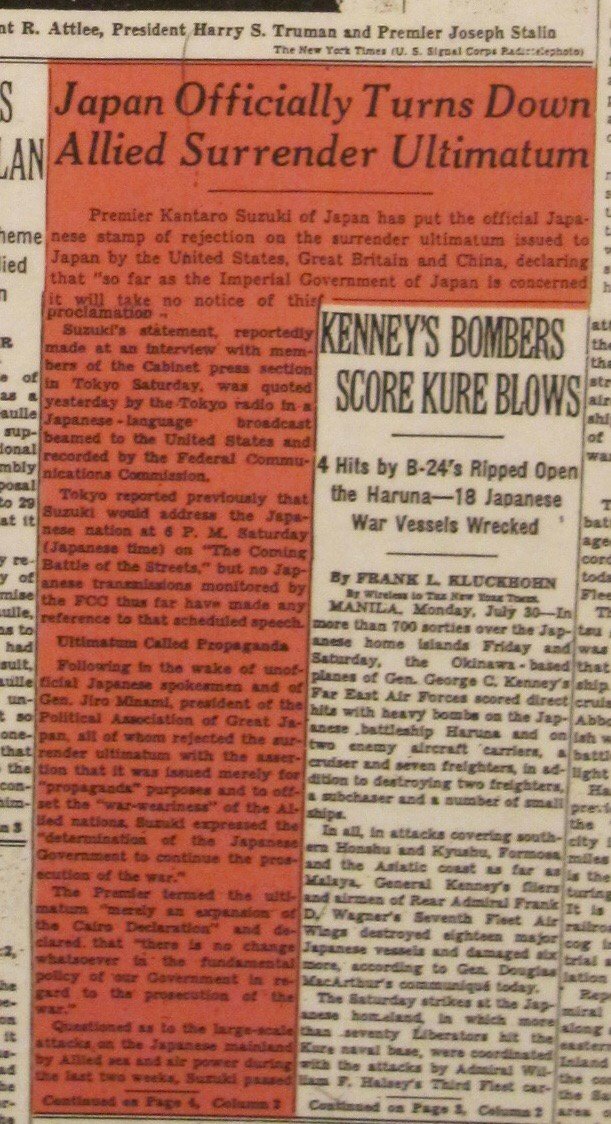
Then again, there are the arguments that dropping those bombs in August 1945 forced the Japanese - especially the Emperor and his military inner circle - to consider something they hadn’t, up to that point: Total Surrender...which came less than a month later. This allowed the United States to avoid a full-on invasion of the Home Islands, during which many hundreds of thousands of GIs might have lost their lives against a cornered, fanatical opposition.
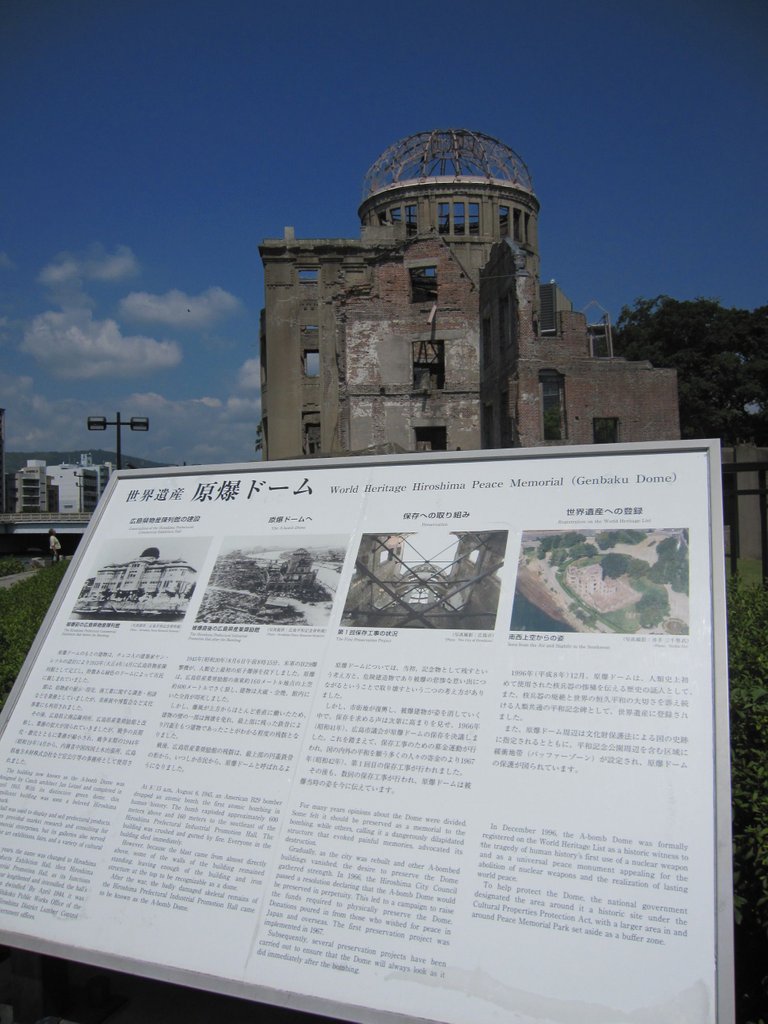
It’s silly to think that after seven years of civil war, Bashar al-Assad cares about the lives of his soldiers. At the same time, it isn’t silly to think that Assad would want to consolidate the Syrian Army’s gains against rebels in the Damascus area, and might gamble that a busy world would look the other way (or respond moderately). This makes a certain amount of sense when we remember that Moscow provides Syria with a significant amount of cover.
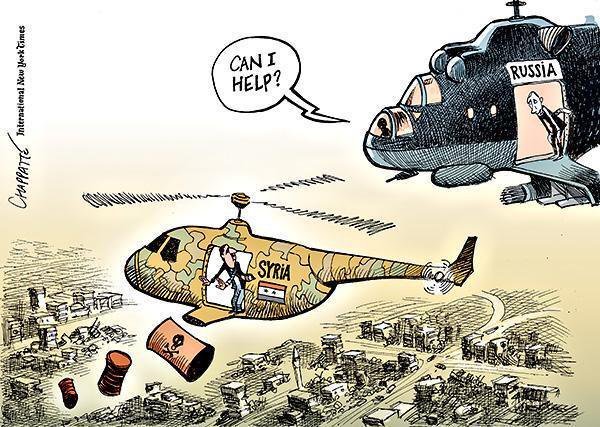
Then again, it could also be that rogue elements in the Syrian military used WMDs, so that the blame would fall on Assad. It is difficult to think, though, how a military commander in that dictatorship would ever be entrusted with access to WMDs to begin with. And on the off chance that rebels used chemical weapons on their own people to bring down fire and fury upon Assad, we must ask, “From where (or whom) would they have gotten such weapons?”
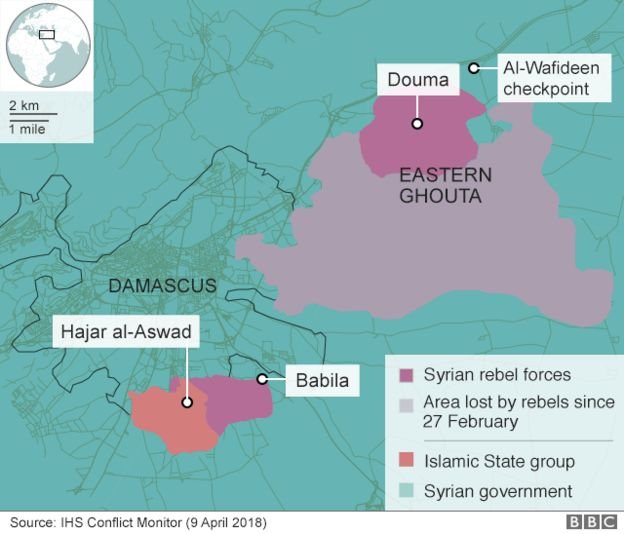 ,
,Any which way you look at it, the very fact that chemical weapons are still in play in Syria - despite the claims that all were given up following Obama’s weak response to his “red line” being crossed in the past - shows that problems remain. It isn’t just chemical weapons; it’s the Civil War, it’s Assad, and it’s Russia’s steadfast support for Assad. We had a chance, in the past, to punish them in ways they’d never forget. We had a chance to put pressure on Russia.
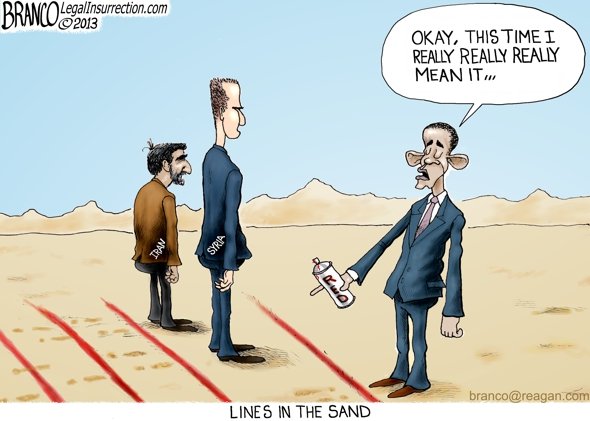
We didn’t; or rather, Obama didn’t. Now, we’re faced with an increasing likelihood of escalated military involvement in Syria, and a possible confrontation with Russia. It isn’t very likely that anything Donald Trump orders be done to the Assad regime (if, in fact, he so orders it) will lead to its downfall; it won’t change Russia’s staunch support of its ally. Sure, some kind of military response against Assad - and by extension, Russia - will send a message that we are there for the Syrian people...but it is a message that will arrive far too late, for far too many.
Which begs the question: What would the point be of military action? Will it save lives? Make an impact? Or will it just temporarily inconvenience those who will be tasked with rebuilding whatever it is our missiles demolish? If it doesn’t make Assad - and Putin, and Iran - think twice about their actions and strategy in Syria, then it won’t be much help to anyone at all.